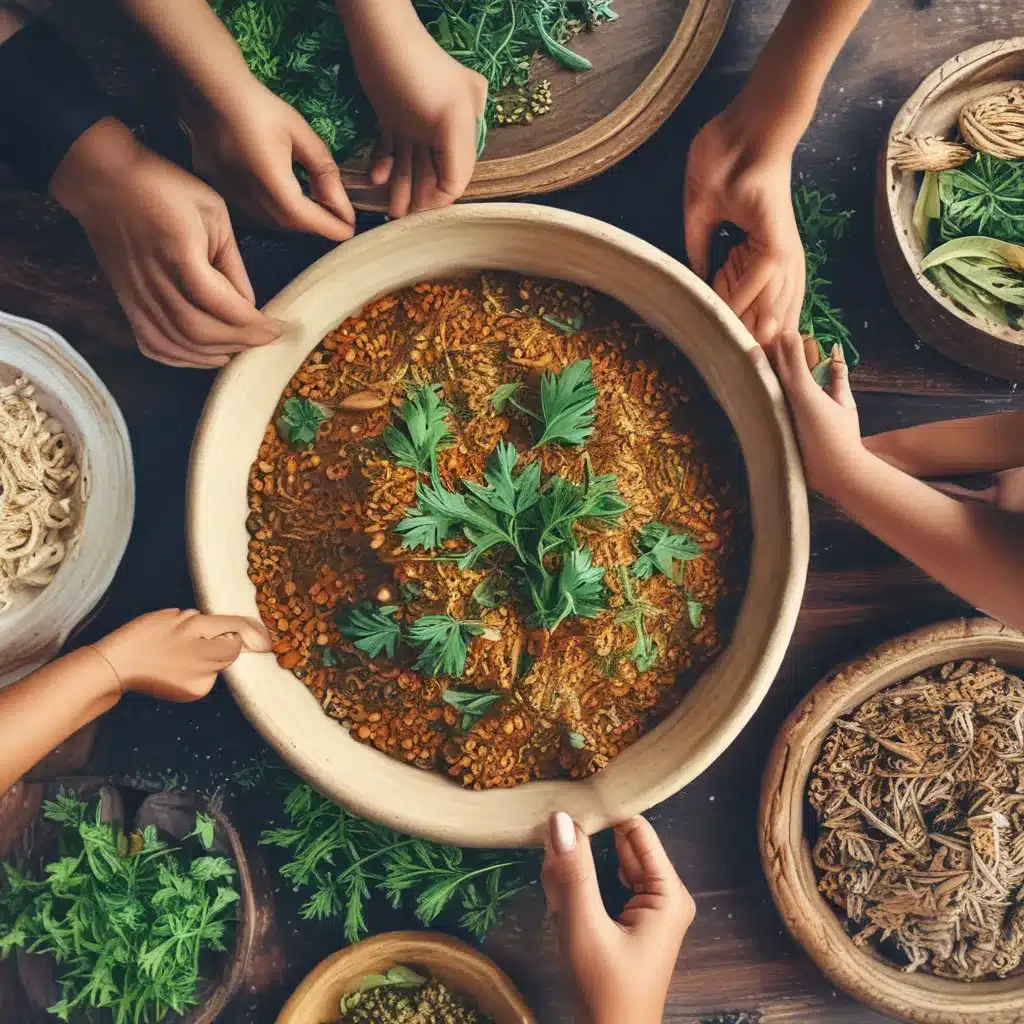
Spices and Stories: Cultivating Connections Through Moroccan Cuisine
As I step into the bustling kitchen of El Bahia, the aromas of cumin, coriander, and a myriad of other tantalizing spices envelop me. This Moroccan restaurant in the heart of New York City isn’t just a place to dine – it’s a space where cultures converge, stories are shared, and communities are built, one delectable bite at a time.
Growing up as the child of Palestinian and Syrian immigrants, food has always been the universal language that has bridged the gap between my cultural heritage and the American experience. Just like Chef Reem Assil, whose own culinary journey was shaped by her Arab roots and her time as a community organizer, I’ve found that the act of sharing a meal can be truly transformative.
Spice Blends and Shared Histories
As I ponder the vibrant flavors that dance on my palate, I’m reminded of the rich tapestry of history and tradition woven into each dish. The berbere spice blend, for example, is a testament to the enduring culinary legacy of Ethiopia, with its heady combination of coriander, fenugreek, and smoky paprika. This blend not only infuses the tomato sauce with a bold, aromatic punch, but it also serves as a bridge, connecting diverse culinary traditions and inviting us to explore the stories behind the spices.
In the bustling kitchen, I watch as the chefs effortlessly weave together the flavors of the Moroccan homeland and the vibrant energy of New York City. The quick-thrown-together mashups of my childhood – Kofta spaghetti and meatballs, or tomato sauce with seven-spice – are reimagined and elevated, creating a culinary bridge that celebrates the beauty of cultural exchange.
Sharing as an Act of Empathy
As I savor each bite, I’m struck by the profound sense of community that permeates the space. It’s not just about the food, but the act of sharing it – a universal language that transcends borders and brings people together. Just as Chef Reem Assil’s son instinctively offers her a bite of his meal, the simple gesture of passing a plate or breaking bread together fosters a deeper sense of empathy and connection.
In a world that can often feel divided, I’m reminded of the power of food to unite, to heal, and to create spaces where people can be their authentic selves. The hospitality and community-building that are deeply rooted in Arab culture are palpable in this vibrant restaurant, where strangers become friends and stories are shared over steaming tagines and fragrant couscous.
The Kitchen as a Sanctuary
As I wander through the bustling kitchen, I’m struck by the sense of energy and purpose that permeates the space. It’s not just a place where food is prepared, but a sanctuary where traditions are honored, memories are made, and connections are forged. Like Chef Reem Assil’s grandmother, who spent countless hours in the kitchen, nourishing her family with the scents of cumin, coriander, and other spices, the chefs at El Bahia are the custodians of a culinary legacy that transcends time and space.
In a world that often demands that we compartmentalize our identities, the kitchen at El Bahia is a refuge where the lines blur between Moroccan and American, where the past and present coexist in a harmonious dance. It’s a place where I can unapologetically embrace the fullness of my cultural heritage, safe in the knowledge that my stories and experiences are valued and celebrated.
Revolutions and Revelations
As I reflect on my time at El Bahia, I’m reminded of the transformative power of food and the role it can play in building stronger, more resilient communities. Like the community and labor organizer that Chef Reem Assil once was, I too have seen the potential for food to be a catalyst for change – a way to nourish not just our bodies, but our souls.
In a world that can often feel overwhelming and divided, the simple act of sharing a meal can be a revolutionary act. It’s a way to break down barriers, foster empathy, and create spaces where people can come together, not just to enjoy the flavors of the Moroccan homeland, but to share their own stories, their hopes, and their dreams.
As I step out into the bustling streets of New York City, the echoes of laughter and the clinking of glasses linger in the air, a testament to the power of a shared meal to transcend boundaries and bring people together. And in that moment, I’m reminded that the true essence of a Moroccan restaurant in the heart of this vibrant city isn’t just about the food – it’s about the community, the connections, and the stories that are woven into every bite.


